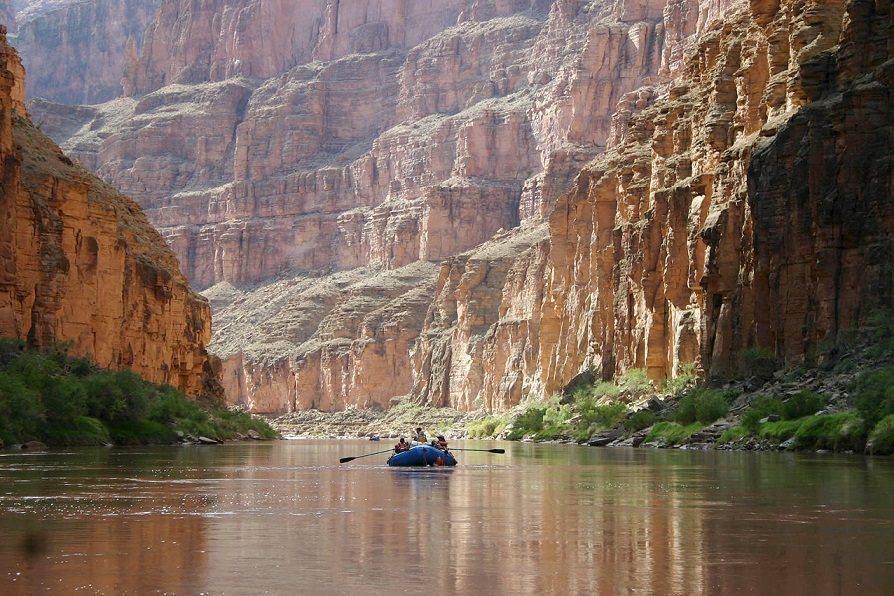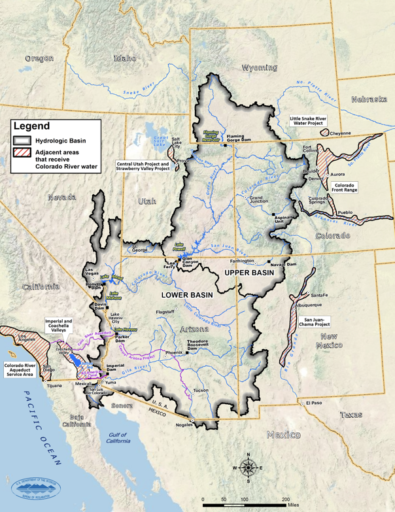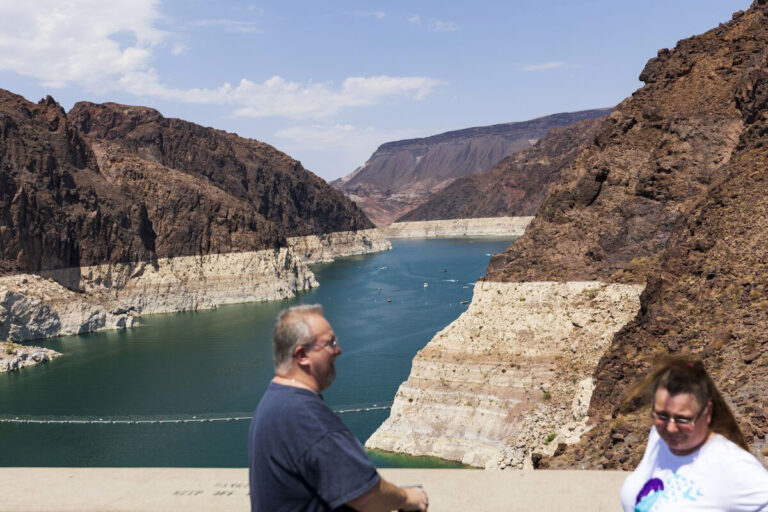
DROUGHT MONITOR DATA | The seven states of the Colorado River basin temporarily benefited from the rains in late 2022. However, the rains have not been sufficient to raise the levels of the large reservoirs in the river basin. (Photo/EFE)
DISAGREEMENT BETWEEN STATES OF THE COLORADO RIVER BASIN
Newsroom El Comercio de Colorado
Haga click aquí para leer la versión en español
“We won’t hesitate to protect our rights to Colorado’s water if other states won’t respect the Colorado River Compacts and other agreements,” says Phil Weiser, Colorado Attorney General. Weiser uses a strong tone that responds to the ongoing conflict between the seven states in the western United States that draw their water from the Colorado River.
Arizona, Nevada, New Mexico, Utah, Wyoming, Colorado and California have not been able to agree on a plan to deal with the reduction in water levels caused by climate change. States had until January 31 to present their proposals to the federal government to share out the reductions after long and acrimonious negotiations.
Six of the states, except for California, submitted a proposal to cut back and prevent reservoirs from falling to dangerously low levels. The six-state plan would result in especially large cuts for California. This state uses more water from the Colorado River basin than any other state, and cuts are made proportionately.
California point of view
California also presented its proposal to spread the reductions with a cut of about 500 million cubic meters by the state until 2026. The federal government has asked the states to reduce their total use by an annual volume of between 2,500 million and five million cubic meters.
The overall system that relies on the Colorado River provides water and electricity to more than 40 million people in the western US. The California proposal underscores that the plan offered by six other states would disproportionately burden southern farms and cities Of California.

California Senators Dianne Feinstein and Alex Padilla criticized the other states’ plan, saying it is “not a genuine consensus solution.” Senators Feinstein and Padilla ensure that the other Basin states have not offered new cuts in their own water use.

Decision by consensus
Feinstein and Padilla stressed that the six-state proposal “does not recognize the legal rights to water that California has by seniority.” “We know that the drought caused by climate change will require changes in the use of water in the Colorado River and that no state will be spared from water reductions,” the legislators insisted.
They added that a consensus is essential to be successful. The senators assure that once they reach consensus, they will be able to work with the US Recovery Office. “A decision by consensus and with the approval of the federal authorities is the only way to protect the long-term sustainability of our region” affirm the senators.
The purpose of obtaining a consensus is laudable. However, the representatives of California maintain a hard line of negotiation which prevents a new agreement. The US Recovery Office is now in charge of creating the proposed water cuts on the bill. We must wait for the response of the states.
See previous agreement for cuts in water use
You may also like:
Andy Rougeot: “I will ban homeless camps”
Debbie Ortega: “I would declare homelessness as an emergency for our city”






otras noticias
Colorado Legislature Approves Law to Boost Food Truck Industry
Polis has 30 days to sign, veto, or let SB25-276 take effect
Stephanie Rodríguez Takes On a New Professional Challenge